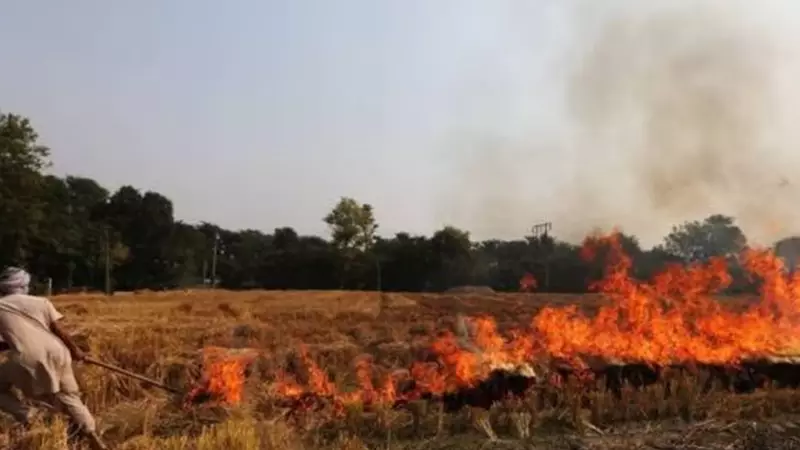
Supreme Court Intervention Amid Rising Farm Fires
The Supreme Court of India has directed the Punjab government to submit a detailed report outlining the steps being taken to control stubble burning, on the same day when satellite monitoring detected 155 fresh farm fires across the state. This development comes as air quality concerns continue to plague the Delhi-NCR region.
A bench comprising Chief Justice BR Gavai and Justices K Vinod Chandran and N V Anjaria specifically asked both Punjab and Haryana governments to file reports on their anti-stubble burning measures. The judicial intervention highlights the growing urgency to address agricultural practices contributing to northern India's severe air pollution crisis.
Punjab Government's Response and Claims
Punjab Agriculture Minister Gurmeet Singh Khuddian offered a defense of the situation, stating that the state machinery is "trying its level best to control the fires and had succeeded to quite an extent." He argued that the reported fires represent only residual burning in corners of fields inaccessible to machinery.
"You will not find any farm on fire," Khuddian told The Indian Express. "These 155 fires must be the result of farmers just burning the residue in the corners of the fields which are inaccessible to machines. Otherwise, the stubble is being managed through machines."
The minister also shifted some blame for Delhi's pollution to Diwali firecrackers, questioning why electric alternatives weren't mandated while farmers face strict scrutiny.
Statistical Trends and Enforcement Measures
According to Punjab Pollution Control Board (PPCB) data, the state has witnessed a significant 70% reduction in farm fire cases in 2024, with 10,909 incidents reported compared to 36,663 in 2023 and 49,922 in 2022.
The current season has recorded 4,662 fire incidents total, with 58% (2,720 cases) occurring in just the past 12 days. While November 1 saw the highest single-day count of 442 cases, this still represents a 35% decline compared to the same period last year, which recorded 7,112 cases.
Following instructions from the Commission for Air Quality Management (CAQM) to establish a 'Parali Protection Force,' Punjab has deployed nearly 10,000 personnel across 11,624 villages. This massive deployment includes:
- 5,000 nodal officers
- 1,500 cluster coordinators
- 1,200 field officers
These teams are required to submit daily action-taken reports through a mobile application developed jointly by PPCB and Punjab Remote Sensing Centre, following physical verification of fire incidents.
Rajeev Gupta, PPCB Superintendent Engineer and nodal officer for stubble management, confirmed that hotspot villages have been identified based on fire incident data. Additionally, the agriculture department has sanctioned 21,958 Crop Residue Management (CRM) machines to provide farmers with alternatives to burning.
Minister Khuddian emphasized that farmers are increasingly aware that stubble burning damages soil micronutrients and that economic considerations remain a primary driver for those still resorting to fires.





